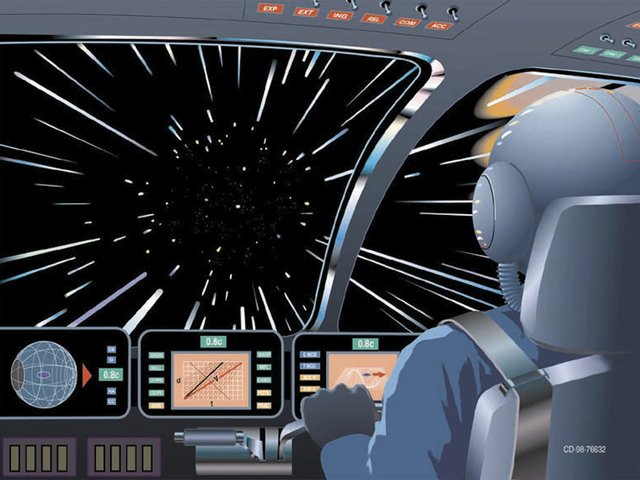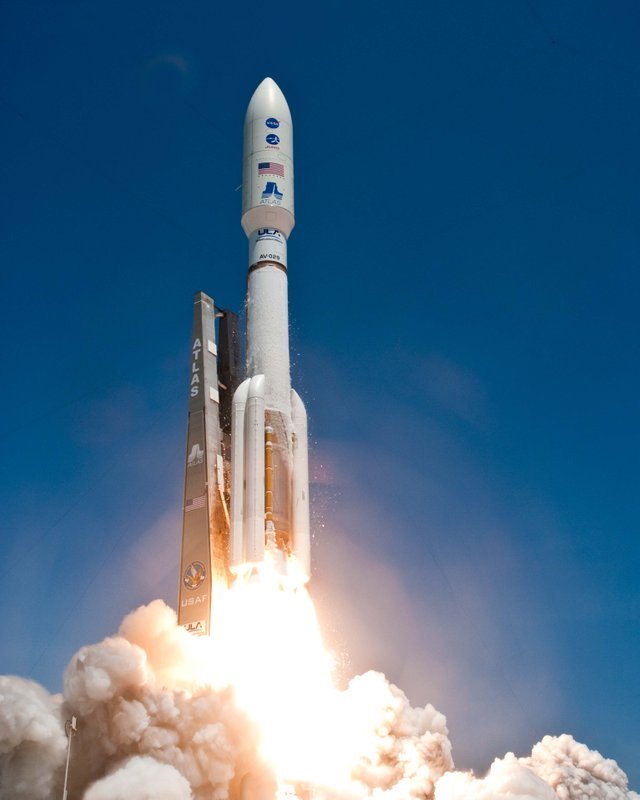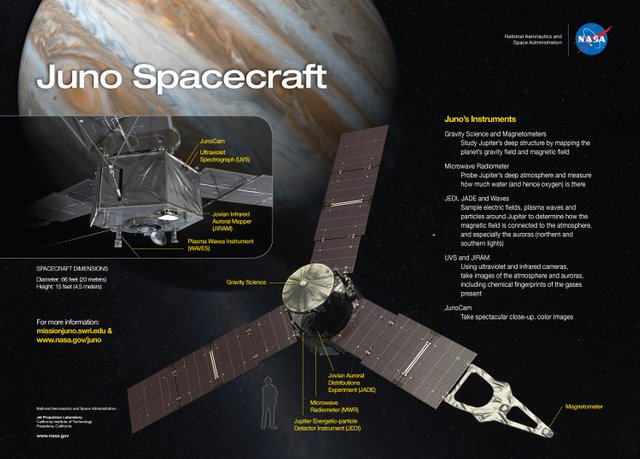The dangers of interstellar travel
Interstellar travel has been a dream of humanity for a long time, but It is extremely dangerous as well.

(source)
We have radiation, food,air, fuel and time to deal with
All of those things are important factors in our survival.
Radiation
Radiation is a common sight in our solar system. Our star produces it non-stop and our atmosphere protects us from it. Even in short space mission radiation has been a problem. For example we are keeping the ISS in the magnetosphere (the earths magnetic field) to keep the astronauts safe from the radiation. We have belts of radiation surrounding the planet called "Van Allen belts". They are between us and the moon and we can not protect people inside from the first part of it effectively. (There are two belts and the second is far weaker.) We came up with a genius solution. Just go really, really, really fast. It worked, go NASA. We do not have this option is space. However, since we will be far from any star only small amounts of radiation will get through. Unless a few specific events like a supernova or a gamma ray burst from a black hole happen to be near us. These are unlikely but we would likely be killed by either of them. Long term radiation without proper protection might up the rate of cancer and such, but will likely not kill everybody.
Food and water are bigger problems
We would need heavy recycling to get all of our water back. Even dust is hard to come by between us and our nearby stars. We would have to carry with us all the water we need.
Food would be an even bigger challenge. We can't grow plants without a source of light and food. I do not know of food that can last hundreds of years without going bad. Growing it would mean we have to regulate soil with nutrients. The only way we get these back is through feces. This would mean we must recycle everything that comes out of us and bring massive amounts with us.
Air
We would also need lots of air. We can not keep a seal perfectly tight for a long time in space. Air would get out. If we run out of air we die. We would need to store air in an extremely compressed state. If it explodes you would be done for. We need oxygen, carbon dioxide and nitrogen. Oxygen for us, carbon dioxide for the plants and nitrogen for the pressure.

(source)
Fuel
Fuel is hard to get in space. We will be far from any stars so solar panels will provide only a little. We could collect dust but this would slow us down. This means we basically need to bring all of our fuel with us. We could do it in a few ways. We could hold onto some hydrogen for fusion and produce it as we need it. This would be a compact solution and allow us to travel quickly. We could bring antimatter with us. This is the most compact but is dangerous. It could explode and an amount that would power us for that amount of time could wipe out an entire ship. However, bringing as much food and water as we are, we need an extremely efficient energy source or else we are done for.
Propellant is what we mainly need fuel for. We have a two options carry small amounts of fuel and accelerate once for the way there or accelerate by small amounts the entire time. Also, chemical rockets are out of the question as they are too inefficient and bulky. The first has a problem, dust. We will encounter lots of space dust on our way there which will cause a constant deceleration on the ship. This rocket type would most likely be achieved with antimatter fuel. The other one could be fueled by both. The problem with this one is the deceleration needed once we get to our destination.
The first would be a conventional rocket while the second would most likely be an EM drive or the"Variable Specific Impulse Magnetoplasma Rocket". The EM drive bounces photons in a pointed cylinder until they cancel out in one direction and go out the back causing thrust. The magnetoplasma rocket was popular before the EM drive, not so much now. It uses radiowaves to heat up plasma and uses magnetic fields to shoot it out the back of the rocket. This causes more acceleration (we can't really test the EM drive well though). This means that at the cost of more fuel we would go faster.
As we get closer to the speed of light, our mass increases and time slows down. This would mean we would get less and less benefit from going faster and faster. The increase in acceleration may not be worth it.
Time
Time is the most import factor to all of this.
Alpha Centauri A is the closest star to us at 4.22 light years away. The crew of apolo ten made it 11.1 km/s or 0.004% the speed of light. At that speed it would take us a little over a thousand years to get there. An average bullet goes 0.76 kilometers a second. It would take a hundred thousand years to get to our next star.
The Juno spacecraft will be the fastest things humans have made going at about 40 kilometers a second. This is still a few hundred years just to get to our closest star. We plan on sending something the size of a postage stamp there. We will be able to get it to 10% of the speed of light. That means that it will still take over 40 years to get there.

(source)
Even at 10% the speed of light we would have to take care of people for 40 years. This means 40 years of food, water, air, and fuel. This would increase the mass of the ship by a large amount, which would then increase the fuel requirements. The problem of acceleration plays a big part as well. For larger ships half of the voyage could be accelerating and decelerating. That would increase the travel time by a large amount.
A space ship would need tools to repair itself. We have not yet built an object that wouldn't fall apart after 10 years in space keeping humans alive. We do not have the technology or resources to build something like this yet. Unless we create something like a warp drive, we will not see anybody arrive within our lifetime.
Interesting article.
Well, the fuel problem could be discarded if the black matter surfing waves studies keeps on going ahead. If the ship takes that wave (hard enough to get it), the ship could be moving surfing on it towards wherever it wants saving all the fuel.
Light for plants, must not be a problem either because already many of the plants could grow with artificial light.
About wáter I think we could carry thousands of the gases (Hidrogen and Oxygen) compressed, what it allows a larger amount of saved space tan a liquid. Then mix them into an aboard laboratory following a similar process to the cloud's condensation.
The time, keeps on being a huge problem.
I haven't heard of black matter surfing. What is that? Also the gas would take a lot of space either way.
That's a bit summarized, but the universe's mass is about 70-90% this black mass. Imagine a rock and a river. If you throw into the river a rock, that rock will create ondulations on the waters' surface. Now, think about the same but with planets. Planets are the rocks and the black mass is the water of the river. The planet has a mass, and every rotation or traslation movement, creates an ondulation on the black mass.
This was an Einstein theory that couldn't be proven till a couple of months ago.
So, this ondulations could be useds to move over the space, if we artificially create a big and strong enough wave with a new ship system, and we surf that wave.
The problem is that you have to exactly take the wave in a precise point or it wouldn't works; not too far and not too near from the wave. Exactly at the point, what's is supposed to be hard enough.
This sounds like dark matter
That's it. Right!
What I called "black mass" it's "dark matter", sorry 😃
My English is not as good as I wish.
Now I have the doubt if my English was good enough to explain what I explained and being able for people to understand what I wanted to explain 😅
That thread about black mass could be a very interesting theme for making a good post. So if you make one work about, and it's well done as this one yours too, I'll vote high too.
Just giving you some ideas for future works :P
This makes me remember a game called out there. It's some kind of roguelike about surviving in space. We have to deal with oxygen, fuel, etc . It's very hard, we die most of the time and in real life it would be even worse
I looked up that game it looks fun I might actually get it lol
Don't underestimate what we are capable of when our lives are really on the line. Most of us have this remarkable ability to come up with ideas we wouldn't normally think of when our lives depend on it for how we can buy more time to solve a problem that is threatening to kill us. Which is just something you won't experience playing a game since your life really isn't on the line in the game, just your characters life.
Well this article was a decent read right up to the fuel point where we went into discussing a theoretical fuel that doesn't exist for us currently, known as antimatter. Antimatter has only been theorized currently and has not been found or proven to even actually exist at this point in time. Its purely a fuel used in science fiction shows and nothing else. So while you had some interesting points, they were all overshadowed by your lack of knowledge of what is actually real. Just assuming that antimatter is actually real and that we have it when discussing current concerns of space travel is just a bad idea since we don't know it for a fact if it can actually exist, or what would really happen with it if it did exist. I mean your assuming it exists and could be handled when infact if it does exist it may not even be possible to handle it, or it may not be nearly as volatile as people expect in which case it could be a very poor energy producer.
In fact I'm going to make a post about it right now thanks for the idea
we have proven and studied it
https://en.wikipedia.org/wiki/Antimatter
go read
Yea sorry we have proven it, but we still have not been able to study it enough to actually know things for a fact, we are mainly theorizing stuff since we have never been able to attempt a reactor with it or anything of that nature. In fact we have never managed to study it for more than anything but a few fractions of a second.
actually we have had atoms of it last for literally a thousand seconds. A fraction of a second is also a long time for this area of physics.
Yes a fraction of a second is a long time, but it also leaves a lot we would be theorizing based on the brief observations. Either way we still haven't managed to actually do anything with it of this nature in general. We are a considerable way out from being able to consider any game changing real world applications with antimatter.
re read
The greatest danger is if I have you in my sights.

o
The only way we are making it to stars light years away is by finding shortcuts. There gotta be shortcuts in space time that drastically cuts down the length of the journey.
basically
Bookmarked for late-night reading. I like your interesting post.